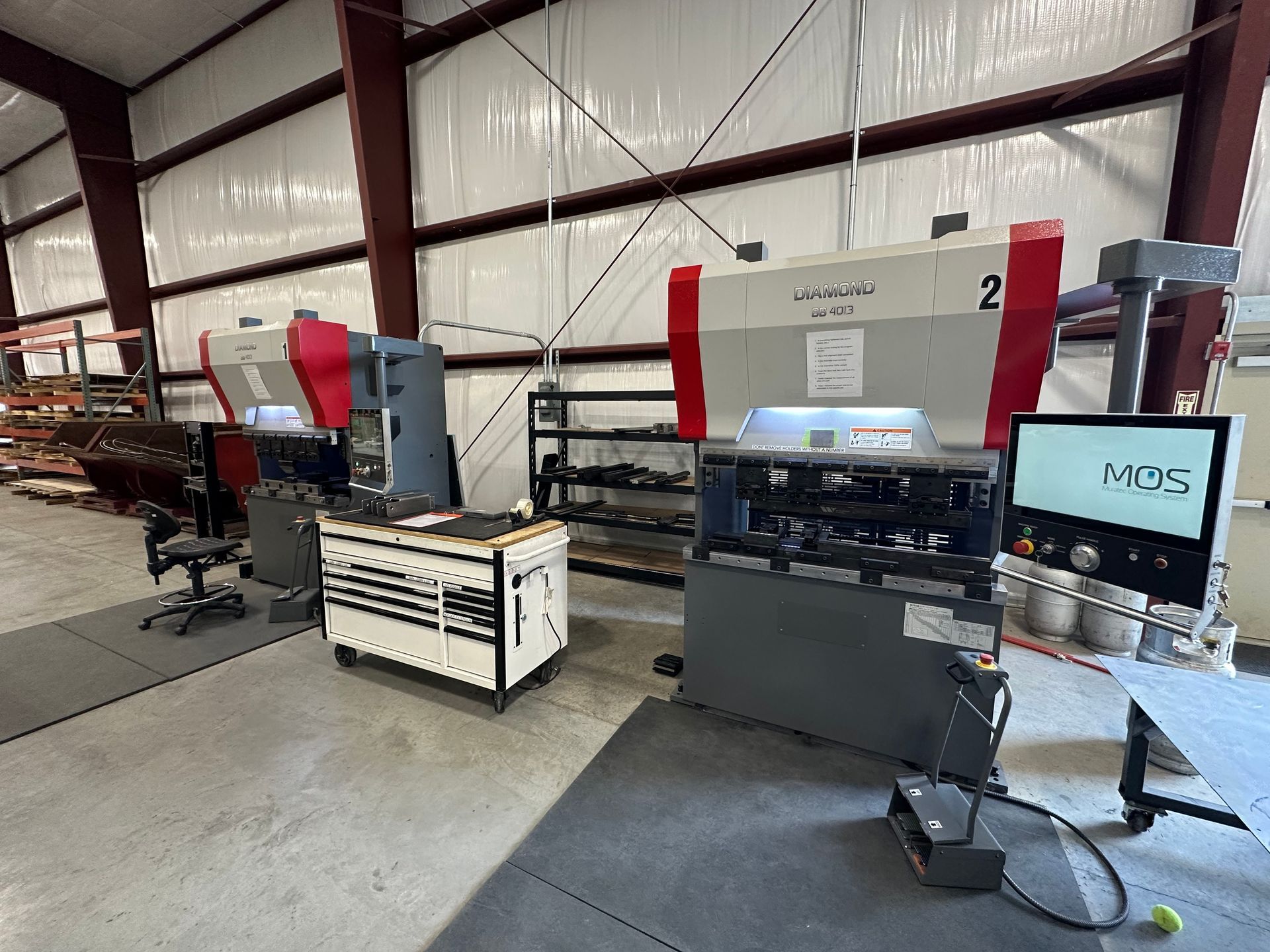Custom Electrical Busbars
We provide custom electrical busbars designed to meet your exact specifications offering efficient, reliable power distribution for panels, switchgear, and high-performance systems.
Custom Busbar Manufacturing Process
01
Submit Job Files/ Prints
Submit job files, requirements and prints for quoting and DFM review.
02
Laser Cut Busbar Flat Patterns
Materials recommended: copper and aluminum
Minimum material thickness: .010"
Maximum material thickness: .500"
Hole size tolerance +- .005"
03
Form Parts
Standard bend tolerances: +-.020"
Specialty bend tolerances: < +- .005"
04
Secondary Processes
Finishes offered: tin plating, silver plating and gold plating
Press fit hardware: threaded inserts and threaded studs
-
Equipment
View EquipmentEvery project comes with its own needs and challenges. We've invested in industry leading machinery to make sure your projects are completed on time and in spec.
What Are Electrical Busbars?
What Are Electrical Busbars?
An electrical busbar is a heavy-duty conductor, typically aluminum or copper used to carry high currents within electrical equipment. Busbars serve as a central point where multiple incoming and outgoing circuits connect—converging power in one location and distributing it to various feeders.
Material / Plating
We offer a wide range of copper and aluminum alloys and can source specialty materials to meet your project’s requirements.
Plating options include standard or matte tin, as well as silver and gold finishes.
Battery Power Distribution
Busbars are the preferred method for connecting battery packs in electric vehicles and energy storage systems due to their rigidity and slim profile. Unlike traditional applications that use uninsulated copper, EV battery systems often use insulated aluminum busbars to reduce weight without compromising performance.
Types of Busbars
There are several types of busbars we offer, each designed for specific applications. Solid busbars are rigid bars made of copper or aluminum, ideal for high-current systems. Insulated busbars are coated for safety and space efficiency, commonly used in EVs and compact systems. The choice depends on current requirements, space constraints, and environmental conditions.
Common Uses for Electrical Busbars
Engineers use busbars in electrical systems when they offer clear design advantages over traditional wiring or cabling. Common applications include power distribution panels, switchgear, electric vehicles, battery storage systems, data centers, and industrial control systems. Busbars provide better current handling, improved organization, reduced space requirements, and enhanced thermal performance in these environments.
Renewable Energy Systems
In renewable energy systems like solar, wind, and hydro, efficiency is essential. Busbars offer a reliable and efficient way to transfer power within these systems, providing both performance and design flexibility.
How can we help with your project?
Additional Services We Offer
Laser
Metal laser cutting is a precise, high-speed process that uses a focused laser beam to cut through steel, aluminum, and other metals with clean edges and minimal waste.
Forming
Press brakes use force to bend sheet metal into precise angles and shapes. It’s ideal for creating brackets, enclosures, and structural components with consistent, accurate bends.
Welding
We use welding to join metal parts and bring your projects to life. Whether it’s custom frames, structural components, or detailed assemblies built to last.
Hardware Installation
Hardware installation involves adding fasteners, inserts, studs, or other components to metal parts, preparing them for final assembly and use.
Powder Coating
Powder coating gives metal parts a durable, clean, and professional finish. It's applied as a dry powder and cured with heat for a long-lasting, chip-resistant surface in a wide range of colors.
Edge Rounding
Edge rounding smooths sharp edges on metal parts after cutting, improving safety, handling, and paint or powder coating adhesion.
Why Us?
98.2% First Time Quality
2024-2025 ISO RMA Report
Work Orders Completed: 697
RMA Precentage: 1.8%




